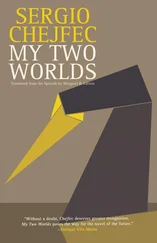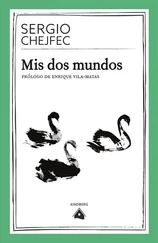I’ve read many novels in which people live in a world without time; I mean, one without linear, psychological, or cosmological time, or any other kind. Reduced to acting on a few instincts, an animal of any species has a more tangible effect on time than man does. A person closes a book and is surprised by the abyss of the day to day, with the varying scales and speeds of time, fast or slow, which leave a fine, invisible layer on the surface of things. Like dust in an empty room, these layers settle uniformly and without hurry; the difference is that they accumulate without building up, so they are always the same thickness and can be lifted as one, regardless of how much time has passed. Like time, which cannot be seen, these are invisible layers that cannot be touched. I’ll give you an example. The character in this book is an immigrant laborer who has reached his twilight years. In his home country, he worked from the time he was a child, but a complex process of mental ellipsis has led him to believe that he only started doing so after he emigrated. The fact that, from the time he was eight, he left his soul on the bleached, unpredictable soil of his village from Monday to Sunday, is stored in his memory in a different form, not under the heading “work.” He thinks, for example, of the wheelbarrows of shit he used to have to cart around, and what they evoke isn’t the hardship — the missteps, the frustration, the cold, the dark — but rather the time that, suspended, refused to pass. It was a rickety old wheelbarrow, heavier than what it could carry, overflowing with whatever his family had unloaded into the latrine over the course of the year. He knew that his father’s steps had left their mark on the path, prints too big for his own feet. Each time he stumbled, the experience confirmed that he was walking a course someone, none other than his father, had followed before, leading him to think that time advanced only through the repetition of actions. These were not the repeated actions of the deranged, the absentminded, or the desperate, but rather a repeated representation, the footstep that conceals the one before it and anticipates the one that follows. As though the subject were the action itself (carting shit, chopping wood, weeding the garden, and so on), and not the person who carried it out. This gave the boy the feeling of inhabiting a static, lasting, monotonous time. Nonetheless, he realized that this immobility was relative, because just a bit farther ahead he would use the last of his strength to tip out the contents of the wheelbarrow. This thought, simple and undeveloped from various perspectives, indicated to him that irreversibility permeated the base and the sublime in equal measure. It wasn’t that he was especially moved by cyclical things — seasons, gradual variations in the landscape, work in the fields — it was that he felt himself part of a time that was free, compact, and tightly bound; impossible to break apart.
Now we return to the present. Many years after this “not working,” as he sits in his pensioner’s armchair he inadvertently overhears one of his sons allude to Einstein’s train. He could understand the idea — the logic was fairly simple — and it seemed to be the best explanation for the anxiety he would feel when he thought the contents of the wheelbarrow might spill on him. At that moment he came to suspect that the fields, the house, his family, his chores, and even he himself were inside the rail car that the genius had used to explain his theory. The example had an immediate retroactive effect: entire blocks of memory were dislodged in the way that, when you forget one language, your former life is translated into a new tongue. Just as when he was a boy, he liked nothing more than to eavesdrop; not because he was drawn to the shameful or the improper, but because something within his bleak interior needed that complement to life found only in secrets. As he listened to his son, the man came to understand that it was not simply one of those ingenious paradoxes of the mundane; more than that, it was the explanation that allowed him to understand his origins and his new life, as he called it, in contrast the one he had led in the village where he was born. And so his memories, which could be transported back and forth from oblivion, did not belong entirely to him; they were part of the multi-purpose car that contained his family and the land. At some point he had gotten off the train, and since then had occupied his own, autonomous time. The multi-purpose car: it was an idea particularly well suited to what it was meant to communicate, a collective journey. The man was surprised to have reached old age and to have retained of his past only a simple token, devoid of value, and proof only of itself. One question had always unsettled him: What could have made him casually blot out entire parts of his life? Now he understood that the mistake lay in trying to find causes or reasons. Trains serve many purposes; the answer could be found right there in the son’s example. It was a simple comparison, an established metaphor — somewhat worn, but for this very reason, effective…
The problem was that, though the argument allowed him to understand and justify his new beginning, it also showed him that it was not new: the metaphor revealed his former life, erased until that moment. He sensed in his body, shall we say, the different accelerations that something as ethereal as time can produce. As he sat in his reduced state in the armchair that had over decades come to resemble the walls around it, listening to the uneven murmur of the voices of his sons, who were almost certainly unaware of him, the man revisited his afternoons as an accelerated stream, a continuum of eating and sleeping. The protagonist wondered about the meaning of these events, whether they might be a sign that the end was near. Each breath, every mouthful of air drawn deep, brought with it the scent of the dusk from his childhood. The same thing happened with sounds. He would have to take the wheelbarrow several times to the pit, which would later be covered over once and for all with dirt. This annual task, of resounding simplicity, seemed now to be the most decisive act of his life. One can imagine: rural time, a fixed cycle as precise as the solar year, as discrete as a whisper, and as encompassing as the world. But it wasn’t only that. That sense of time had been broken when the child had left — or, rather, been torn away — and there was no way for it to keep moving forward. He was caught in his memory of the past; the story was compressed until it reached a speed at which it occupied a single moment, beginning and end, something living that resembled an intangible trace, as ethereal yet verifiable as a shadow. So if I were to say, “That man is me,” my meaning would be clear: in life, one occupies different times.
Delia did not work for long after she got pregnant. The stony-faced workers, as I’ve described them before, would collect money in order to help the child along. A nebulous emotion filled the hearts of many of them, something between compassion and solidarity. On one hand, the group was making the necessary preparations so that its newest member — one of their own, most likely a future worker — would face the fewest possible challenges. On the other, there were plenty of occasions to curse the world and pity the child who would be born into it so insignificant a thing, a solitary castaway. From one moment to the next, the orphan would enter into a reality that was not only hard or merciless but was, above all, incomprehensible. Delia’s fellow workers could not understand it. “Another one,” they would say, “another mouth to feed.” And, a few years later, there would be two more hands that would have to add themselves to the collective labor. Thinking of it that way, as if it lasted only the flutter of an eyelid, time seemed to pass more slowly in the abstract than in practice. And yet it was shocking to see it all laid out in advance, as though life were just a day in the factory, waiting for the years to pass the way one waits between one blink of the eye and the next. Anyway, while the workers muttered about the child’s arrival and secretly organized donations to help Delia out with a few things, I spent most of my time shut away in Pedrera. Like everything else around there, like everything everywhere, the buildings were laid out in a way that was not only imprecise and arbitrary, but also inconsistent and extremely dense. This became even more obvious when you had to cross through one house to get to another, when you wanted to leave Pedrera, or when you ended up in a space that, though it was private, belonged to several houses at once. For example, my bed was next to a hallway that joined two rooms to a bathroom, which, for its part, had to be passed through to reach a cluster of houses that had been built on the far side. Sometimes I’d think about the geography of the place and find no words for the binding and eccentric routes it imposed on those who lived there, as though the simple act of walking through it were a ritual of submission to its authority. From my bed, I would watch people pass with astronomical regularity, day after day, as persistent as ants. I thought: I, who have always so admired the working class, was heartlessly abandoning the weakest representative of the species as though I were intent on its extinction. It was an idea that did not lead to any other; it lingered only as long as it took to smoke a cigarette or hung there for a moment as the voices of passersby distracted me. It was an inert phrase that did not lend itself to replies or associations, nor did it translate into words, and even less so into actions.
Читать дальше












